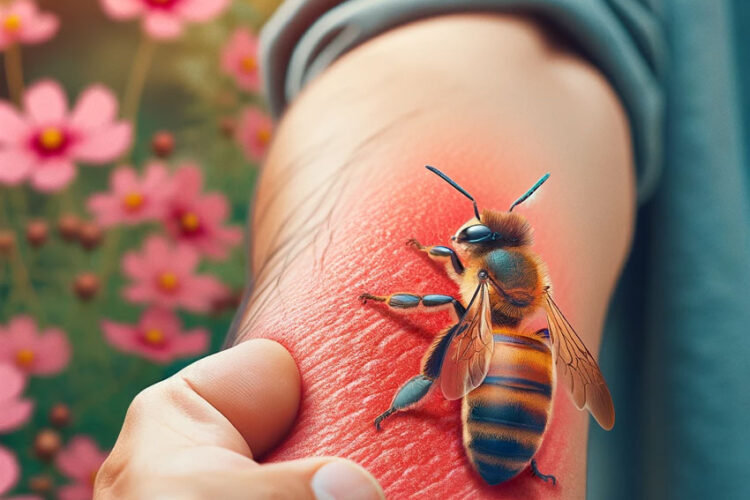Manuka honey is a type of honey that is produced in New Zealand and is known for its unique antibacterial properties. It has been used for centuries as a natural remedy for various ailments, including allergies. Manuka honey is said to have a range of health benefits, including anti-inflammatory and antioxidant properties.
While some people swear by the benefits of manuka honey for allergies, others are skeptical about its effectiveness and safety. There are concerns about the potential side effects of consuming manuka honey, as well as questions about its purity and quality. In this article, we will explore the use of manuka honey for allergies and examine the safety concerns associated with this natural remedy.
Key Takeaways
- Manuka honey is a type of honey produced in New Zealand that has unique antibacterial properties.
- Some people believe manuka honey can help with allergies, but there are concerns about its effectiveness and safety.
- It is important to be aware of the potential side effects of consuming manuka honey and to ensure that it is pure and high quality.
Manuka Honey: An Overview
Manuka honey is a type of honey that is produced in New Zealand by bees that pollinate the Manuka bush. It is known for its unique antibacterial properties and is often used as a natural remedy for various health conditions, including allergies.
Manuka honey contains a compound called methylglyoxal (MGO), which is responsible for its antibacterial properties. The level of MGO in Manuka honey is measured using the Unique Manuka Factor (UMF) rating system. The higher the UMF rating, the higher the level of MGO in the honey.
Manuka honey is often used to treat allergies due to its anti-inflammatory properties. It can help reduce the symptoms of allergies, such as sneezing, runny nose, and itchy eyes. Additionally, Manuka honey has been shown to be effective in treating sore throats and coughs.
Allergies Associated with Manuka Honey
Manuka honey is a type of honey that is known for its unique antibacterial properties, and it is often used as a natural remedy for various health conditions. However, like any other food, some people may experience allergic reactions to Manuka honey. In this section, we will discuss the common symptoms, risk factors, and prevention methods associated with Manuka honey allergies.
Common Symptoms
The symptoms of Manuka honey allergies can vary from mild to severe and can affect different parts of the body. Some common symptoms of Manuka honey allergies include:
- Skin rash
- Hives
- Swelling of the face, lips, tongue, or throat
- Itching or tingling sensation in the mouth or throat
- Nausea or vomiting
- Difficulty breathing
- Anaphylaxis (a severe, life-threatening allergic reaction)
It is essential to seek medical attention immediately if you experience any of these symptoms after consuming or coming into contact with Manuka honey.
Risk Factors
Several factors can increase the risk of developing an allergic reaction to Manuka honey, including:
- History of allergies: People who have a history of allergies to honey or other bee products are more likely to develop an allergic reaction to Manuka honey.
- Immune system disorders: Individuals with immune system disorders, such as autoimmune diseases, are at a higher risk of developing an allergic reaction to Manuka honey.
- Age: Children and older adults may be more susceptible to allergic reactions to Manuka honey.
- Pollen allergies: People with pollen allergies may be more likely to develop an allergic reaction to Manuka honey, as it may contain pollen from various plants.
Prevention Methods
If you have a known allergy to honey or other bee products, it is essential to avoid consuming or coming into contact with Manuka honey. It is also crucial to read food labels carefully and avoid any products that contain Manuka honey.
If you are unsure whether you are allergic to Manuka honey, you can undergo allergy testing to determine your sensitivity to honey and other bee products. Additionally, individuals who are at a higher risk of developing an allergic reaction to Manuka honey should consult with their healthcare provider before using it as a natural remedy.
Safety Concerns of Manuka Honey
Manuka honey is generally considered safe for consumption and topical application. However, there are some potential side effects and interactions with medications that should be considered.
Potential Side Effects
Consuming excessive amounts of Manuka honey may lead to some side effects, such as gastrointestinal discomfort, diarrhea, and allergic reactions. The allergic reactions are rare, but they may occur in individuals who are allergic to bees or pollen.
Topical application of Manuka honey may also cause some side effects in rare cases. These may include skin irritation, redness, and itching. It is recommended to do a patch test before using Manuka honey topically to avoid any potential allergic reactions.
Interactions with Medications
Manuka honey may interact with certain medications, including blood thinners, chemotherapy drugs, and antibiotics. It is recommended to consult with a healthcare provider before using Manuka honey if you are taking any medications.
In addition, Manuka honey may have a hypoglycemic effect, which means it may lower blood sugar levels. Individuals with diabetes should monitor their blood sugar levels closely when consuming Manuka honey.
Regulations and Standards for Manuka Honey
Certification Process
Manuka honey is a unique product with its own set of regulations and standards. In December 2017, the Ministry for Primary Industries (MPI) of New Zealand finalized a robust scientific definition that can be used to authenticate whether a particular honey is New Zealand manuka honey. The certification process involves rigorous testing and analysis to ensure that the honey meets the required standards. The MPI has also introduced requirements to improve how bee products are traced through the supply chain and to make sure that New Zealand bee products comply with safety and quality standards.
Labeling Requirements
Proper labeling of manuka honey and other bee products is essential to ensure consumer safety and to prevent fraud. The Food and Drug Administration (FDA) has issued guidance to the regulated industry on the proper labeling of honey and honey products. According to the guidance, honey must be labeled with the common or usual name of the food, which is “honey” in this case. The label must also include the name and address of the manufacturer, packer, or distributor. In addition, if the honey is blended with other sweeteners, the label must indicate the percentage of honey in the blend.
For manuka honey, the label must also indicate the Unique Manuka Factor (UMF) rating. The UMF rating is a measure of the antibacterial activity of the honey and is determined through laboratory testing. The higher the UMF rating, the higher the antibacterial activity of the honey. The label must also indicate the country of origin, which should be New Zealand for authentic manuka honey.
Conclusion
Manuka honey has been used for centuries as a natural remedy for various ailments. Recent studies have shown that it has potent antibacterial, anti-inflammatory, and wound-healing properties. However, it is important to note that not all Manuka honey is created equal. The UMF rating system provides a way to measure the potency of Manuka honey, and consumers should look for products with a UMF rating of 10 or higher.
While Manuka honey is generally safe for consumption, individuals with allergies to honey or bee products should exercise caution. It is also important to note that Manuka honey should not be given to infants under the age of one due to the risk of botulism.
Consumers should also be aware of the potential for Manuka honey to interact with certain medications, such as blood thinners and chemotherapy drugs. It is recommended that individuals consult with their healthcare provider before using Manuka honey as a treatment for any medical condition.





